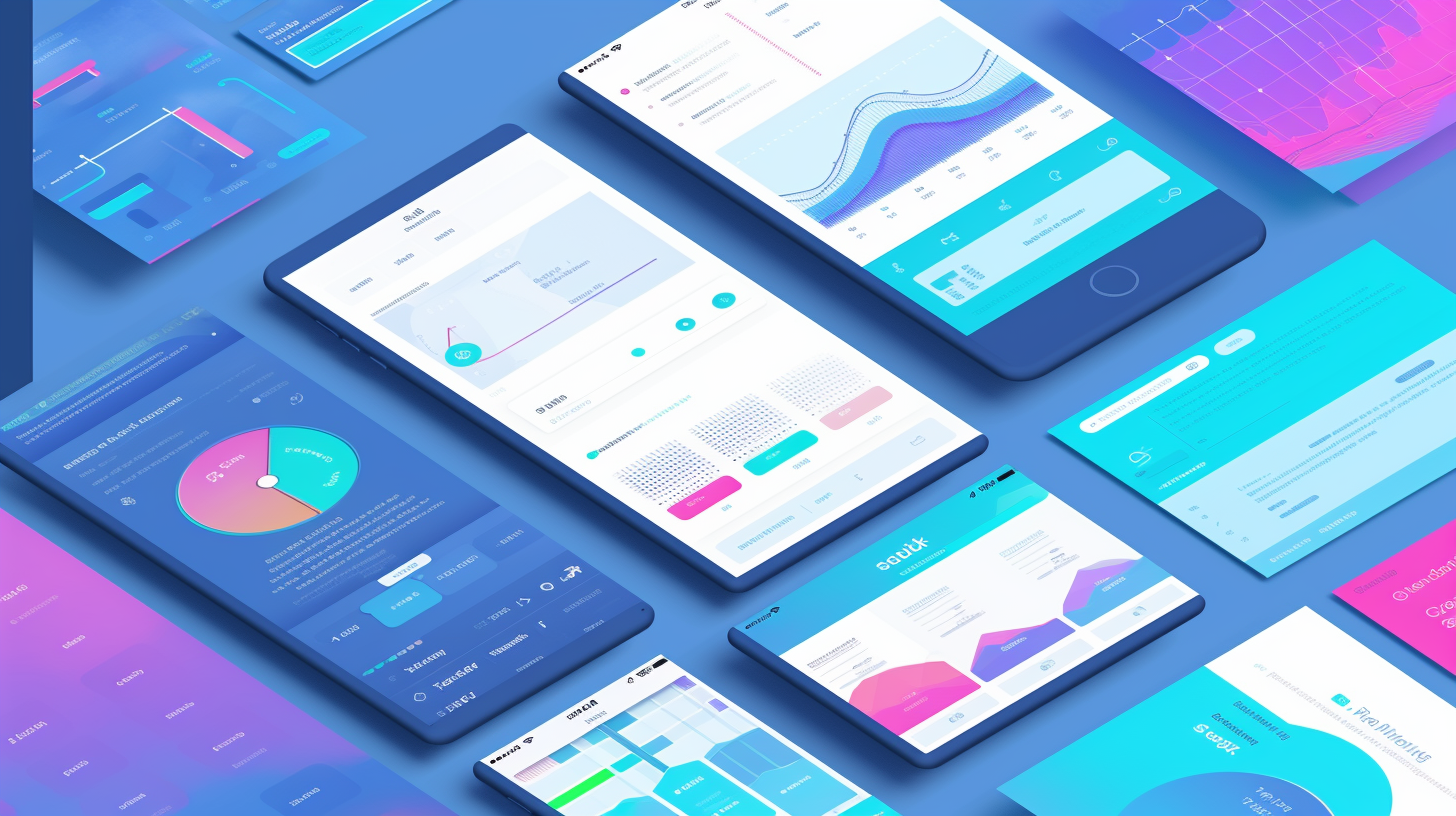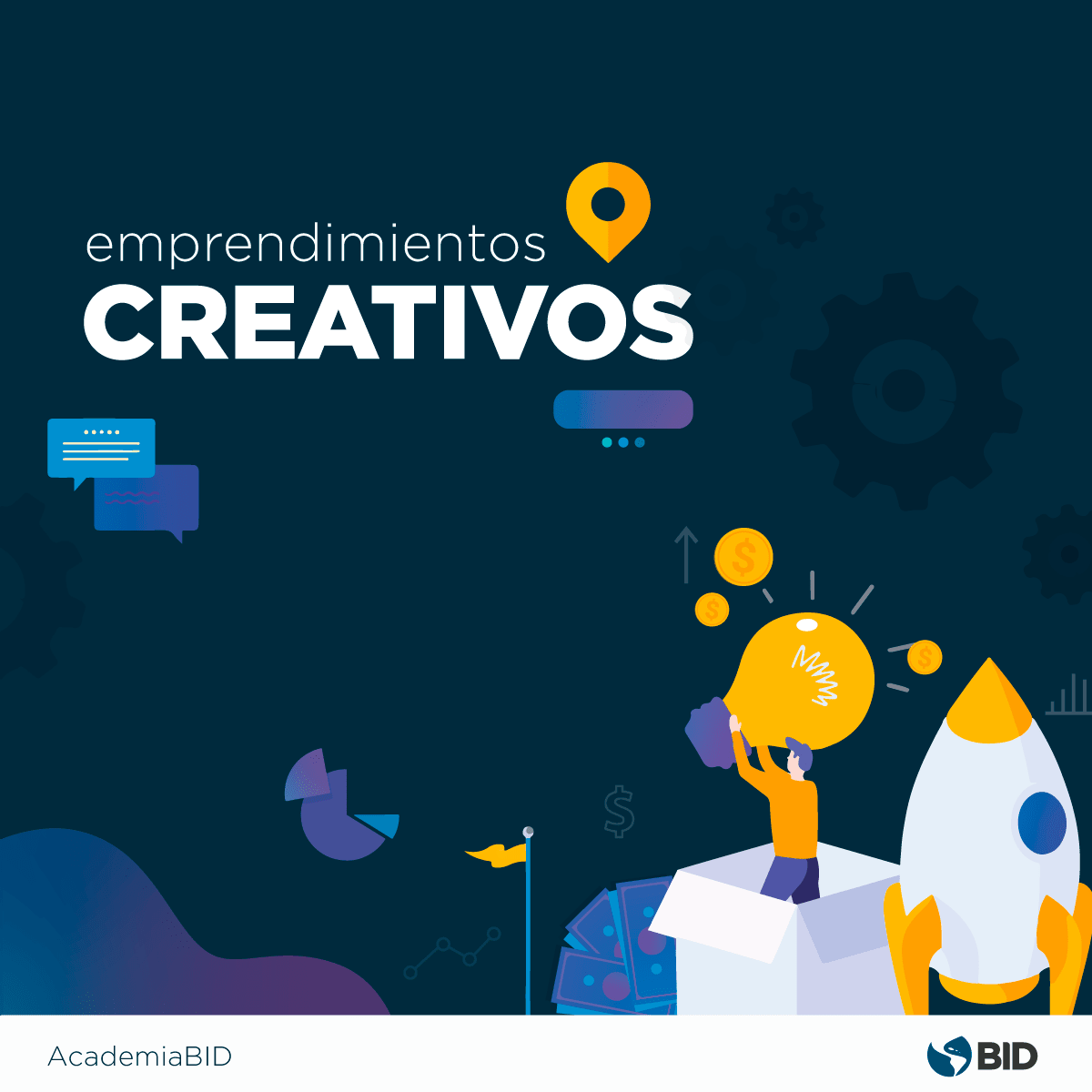Designer
Designer
Design is a multifaceted field focused on creating solutions, experiences, and objects that are functional, aesthetically pleasing, and meet user needs. Designers work across a vast spectrum of industries, shaping everything from the websites we browse and the apps we use to the products we buy and the spaces we inhabit. It's a career path driven by creativity, problem-solving, and a deep understanding of human interaction.
Working as a designer can be incredibly engaging. You might find excitement in the process of transforming abstract ideas into tangible forms, collaborating with diverse teams to bring a vision to life, or seeing your work make a real impact on how people experience the world. The field constantly evolves, offering continuous learning opportunities and the chance to work with cutting-edge technologies.
What is a Designer?
Defining the Role Across Industries
At its core, a designer identifies problems and crafts solutions. This fundamental principle applies whether they are working on visual communication, user interfaces, physical products, or built environments. While the specific tools and outputs vary greatly, the underlying goal remains consistent: to improve usability, appeal, and effectiveness through thoughtful creation.
Consider a Graphic Designer
UX/UI DesignerDespite these specializations, the design field is highly interdisciplinary. A Web Designer
Impact on Products, Services, and Experiences
Design is not merely about making things look good; it's about making things work well and resonate with people. Effective design can significantly enhance a product's usability, making complex technology feel intuitive. Think about the simplicity of using a well-designed smartphone app versus struggling with a confusing interface – that difference is often the result of careful user experience (UX) design.
Beyond individual products, design shapes entire services and experiences. Service design maps out customer interactions across various touchpoints (e.g., website, physical store, customer support) to create a seamless and positive journey. Think of airlines improving the check-in process or hospitals redesigning patient intake for better comfort and efficiency.
Ultimately, design influences perception and behavior. A well-designed brand identity builds trust and recognition. Thoughtful urban planning can encourage community interaction and sustainable living. Designers, therefore, play a crucial role in shaping our interactions with the world around us, impacting everything from daily routines to societal structures.
Core Objectives: Problem-Solving, Aesthetics, Functionality
The primary objective of any design project is typically to solve a specific problem. This could be anything from improving readability on a website to creating more ergonomic furniture or developing a more efficient workflow for a digital tool. Designers analyze the problem, understand user needs, and iterate on potential solutions.
Aesthetics, or the visual appeal of a design, are also vital. Good aesthetics can capture attention, evoke emotion, and communicate brand values. However, aesthetics must work in harmony with functionality. A beautiful chair that is uncomfortable to sit in fails as a design, just as a visually stunning website that is impossible to navigate falls short.
Functionality ensures that the design serves its intended purpose effectively and efficiently. This involves considerations like usability, accessibility, performance, and durability. Designers constantly balance these three core objectives – problem-solving, aesthetics, and functionality – often making trade-offs to achieve the optimal outcome for the specific context and user group.
Understanding these core objectives helps frame the diverse activities and responsibilities involved in a design career.
For those interested in the intersection of art, function, and human experience, exploring foundational concepts can be beneficial.
What Does a Designer Do?
A Day in the Life: Tasks and Activities
A designer's daily routine can vary significantly based on their specialization, role, and project phase. Common activities often include research – understanding user needs, market trends, and competitor analysis. Ideation sessions involve brainstorming
Much time is spent creating and refining designs using specialized software or physical materials. This could involve drafting wireframes and mockups for digital interfaces, building 3D models for products, or creating layouts for print media. Prototyping allows designers to test ideas quickly and gather feedback before committing to final production.
Collaboration is key. Designers frequently present work to clients or internal stakeholders, incorporating feedback into revisions. They might work closely with engineers, developers, marketers, and writers to ensure the final output aligns with technical constraints and project goals. Communication and iteration are constant threads throughout the day.
These courses offer glimpses into specific design workflows and creative processes.
Work Environments: Freelance, Agency, In-House
Designers can find opportunities in various work settings, each with its own culture and demands. Freelance designers operate independently, managing their own clients, projects, and schedules. This offers flexibility and control but requires strong business acumen and self-discipline to find consistent work.
Working at a design agency exposes designers to a wide range of clients and industries. Agencies often foster a fast-paced, creative environment with opportunities to collaborate on diverse projects. The focus is typically on client service and delivering high-quality work within specific timelines and budgets.
In-house designers work within a single company, focusing on its specific products, services, or brand identity. This allows for deep immersion in the company's goals and culture, fostering long-term impact. In-house roles often involve close collaboration with product, marketing, and engineering teams, contributing to the evolution of the company's offerings.
The choice between these environments often depends on personal preferences regarding work variety, stability, collaboration style, and career trajectory.
The Project Lifecycle: From Brief to Delivery
Most design projects follow a structured lifecycle, although the specific phases can vary. It typically begins with a brief or problem statement outlining the project's goals, target audience, constraints, and desired outcomes. This phase involves research, analysis, and clarification to ensure everyone understands the objectives.
Next comes the ideation and concept development phase, where designers explore various solutions through sketching, brainstorming, and mood boards. Promising concepts are then developed further into more detailed designs, such as wireframes, mockups, or prototypes. User testing and feedback loops are crucial during this stage to refine the direction.
The production phase involves creating the final assets, whether digital files for developers, print-ready documents, or specifications for manufacturing. Rigorous quality checks ensure the design meets all requirements. The final step is delivery, which might involve launching a website, handing off files, or overseeing production.
Post-launch analysis and iteration are also common, especially in digital design, where performance data and user feedback inform future improvements. Understanding this lifecycle helps designers manage expectations, allocate resources, and navigate projects effectively.
Essential Skills for Modern Designers
Technical Proficiency: Tools of the Trade
Mastery of industry-standard software is often a baseline requirement. For graphic and UI design, proficiency in the Adobe Creative Suite (Photoshop, Illustrator, InDesign) and vector-based tools like Figma or Sketch is essential. These tools are used for creating layouts, illustrations, photo manipulations, and interface designs.
Industrial designers and architects rely heavily on Computer-Aided Design (CAD) software like SOLIDWORKS
Emerging tools, including those for 3D printing
These courses provide foundational training in widely used design software.
Soft Skills: Collaboration, Empathy, and Management
Technical skills alone are insufficient. Designers must possess strong soft skills to succeed. Communication is paramount – articulating design decisions, presenting work clearly, and providing constructive feedback are daily activities. Collaboration skills are needed to work effectively within teams and with clients.
Empathy, the ability to understand and share the feelings of others, is fundamental to user-centered design. Designers must put themselves in the user's shoes to create solutions that truly meet their needs and address their pain points. This involves active listening, observation, and user research.
Time management and organizational skills
Developing these interpersonal and professional skills is just as important as mastering design tools.
Adaptability and Future Technologies
The design landscape is constantly shifting, driven by technological advancements and changing user expectations. Adaptability is therefore a crucial trait for designers. This means embracing lifelong learning and being willing to explore new tools, methodologies, and platforms.
Emerging technologies like Artificial Intelligence (AI) are beginning to impact design workflows. AI tools can automate routine tasks, generate design variations, analyze user data, and even assist in content creation
Staying informed about trends in areas like virtual reality (VR), augmented reality (AR), voice user interfaces (VUI), and sustainable design practices is also important. Designers who proactively adapt their skills and knowledge will be better positioned for future opportunities.
These books explore the nature of creativity and its role in a changing world.
Formal Education Pathways
University Degrees: Bachelor's and Master's Programs
Many designers pursue formal education through university programs. A Bachelor's degree (e.g., BFA - Bachelor of Fine Arts, BA - Bachelor of Arts, BS - Bachelor of Science in Design) typically provides a broad foundation in design principles, history, theory, and technical skills specific to a chosen specialization like graphic design, industrial design, or interaction design.
Curricula often include studio courses for hands-on practice, critique sessions for feedback, and courses in related areas like art history, psychology, or computer science. These programs emphasize critical thinking, conceptual development, and building a strong theoretical base alongside practical skills.
A Master's degree (MFA, MA, MS, MDes) allows for deeper specialization, advanced research, or a transition into design from another field. Master's programs often focus on complex problem-solving, leadership, design strategy, or theoretical inquiry. They can be beneficial for those seeking leadership roles, academic careers, or highly specialized expertise.
Building a Portfolio Through Academic Work
Regardless of the degree level, a strong portfolio is arguably the most crucial asset for landing a design job. Academic programs provide numerous opportunities to build this portfolio through coursework, projects, and thesis work. Students should treat assignments as chances to create compelling case studies demonstrating their skills and design thinking process.
It's important to showcase not just the final polished outcome, but also the process: the research, sketches, iterations, and rationale behind design decisions. This demonstrates critical thinking and problem-solving abilities. Including group projects highlights collaboration skills, while personal projects can showcase initiative and passion.
Seek feedback from professors and peers consistently. Participate in student exhibitions or competitions to gain visibility. Curate the portfolio carefully, tailoring it to the specific types of roles or industries you are targeting after graduation. Your academic work forms the initial foundation of your professional identity.
Research in Human-Centered Design
Higher education, particularly at the graduate level, offers opportunities to engage in design research. Human-Centered Design (HCD) is a major area of focus, emphasizing designing solutions based on a deep understanding of human needs, behaviors, and contexts. Research might involve ethnographic studies, usability testing, participatory design workshops, or accessibility evaluations.
Academic research contributes to the broader understanding of design principles, methods, and ethics. It can lead to innovations in interaction design, product development, service systems, and social impact initiatives. For students interested in pushing the boundaries of the field or pursuing academic careers, engaging in research is invaluable.
Universities often house specialized labs or centers focused on areas like interaction design, health design, sustainable design, or data visualization, providing resources and mentorship for student researchers.
These books delve into creative processes and the industries they shape.
Building Expertise Through Self-Directed Learning
Online Courses and Certifications
Formal degrees are not the only path into design. The accessibility of online learning has opened doors for many aspiring designers and career changers. Platforms like OpenCourser aggregate thousands of courses covering virtually every design specialization and software tool, from introductory graphic design to advanced UX research.
Online courses offer flexibility, allowing learners to study at their own pace and often at a lower cost than traditional degrees. They are excellent for acquiring specific technical skills (e.g., mastering Figma, learning 3D modeling), understanding foundational principles, or exploring new areas within design without committing to a full degree program.
Many courses offer certificates upon completion. While certificates can demonstrate initiative, their value in the job market is often secondary to a strong portfolio. The real benefit lies in the skills and knowledge gained. OpenCourser's Learner's Guide provides tips on structuring self-learning and leveraging online course certificates effectively.
These courses are examples of the diverse learning opportunities available online, covering both creative and technical aspects.
Real-World Projects and Portfolio Building
Regardless of how skills are acquired – through formal education or self-directed learning – applying them to real-world projects is essential for building a compelling portfolio. Theoretical knowledge and software proficiency must be translated into tangible outcomes.
Seek opportunities to practice. Volunteer your design skills for a non-profit organization. Offer to help friends or family with small projects like designing invitations or a personal website. Participate in online design challenges or contribute to open-source projects. Create self-initiated projects based on your interests or perceived needs.
Document your process thoroughly for each project, creating case studies that explain the problem, your approach, the challenges faced, and the final solution. A portfolio filled with thoughtful projects, even if not for paying clients initially, demonstrates capability and passion far more effectively than certificates alone. Use platforms like OpenCourser to discover courses that include hands-on projects
Specialization vs. Generalist Skills
As you learn, consider whether to specialize deeply in one area (e.g., mobile UX design, typography, 3D modeling for games) or develop a broader, more generalist skill set. Specialization can lead to higher demand and potentially higher pay in niche areas, making you an expert in a specific domain.
Generalists, often called "T-shaped" designers (broad knowledge across disciplines, deep expertise in one or two), possess versatility. They can adapt to different project needs and often excel in roles requiring collaboration across various design functions, such as Art Direction or Design Management. This breadth can be advantageous in smaller companies or agencies.
There's no single right answer; the best approach depends on your interests, career goals, and the demands of the market segments you target. Many designers start broader and specialize over time as they gain experience and identify areas of passion. Online courses allow exploration of different specializations before committing deeply.
Community Learning and Networking
Learning design doesn't happen in isolation. Engaging with the design community is invaluable for growth, feedback, and finding opportunities. Participate in online forums (like Reddit's design subreddits), join local design meetups or organizations (e.g., AIGA chapters), and attend industry conferences (online or in-person).
Share your work-in-progress and ask for constructive criticism on platforms like Behance, Dribbble, or specialized forums. Follow influential designers and agencies on social media to stay updated on trends and insights. Participate in design challenges or hackathons – these are great ways to collaborate, learn quickly, and add projects to your portfolio.
Networking within the community can lead to mentorship opportunities, collaborations, and job leads. Building relationships with fellow designers provides support and diverse perspectives, enriching your learning journey.
Exploring different creative outlets can broaden your perspective.
Career Progression in Design
Starting Out: Entry-Level Roles
Graduates or career changers typically enter the field in junior roles. Common titles include Junior Designer, Production Artist, Graphic Designer I, or UX/UI Designer Associate. These positions focus on supporting senior designers, executing specific tasks within larger projects, and learning established workflows and tools.
Responsibilities might involve making revisions based on feedback, preparing files for production or development handoff, creating assets based on existing style guides, and conducting basic user research or testing. It's a crucial period for gaining practical experience, refining technical skills, and understanding the professional design process.
Mentorship from senior team members is vital during this stage. Focus on demonstrating reliability, attention to detail, a willingness to learn, and receptiveness to feedback. Building a solid foundation in these early roles sets the stage for future advancement.
Leadership Paths: Art Director vs. Specialist Tracks
As designers gain experience (typically 3-5+ years), career paths diverge. One common route is towards leadership and management, often starting with roles like Senior Designer and progressing to Art Director or Design Lead/Manager. These roles involve overseeing projects, mentoring junior designers, defining creative direction, and interacting more with clients or stakeholders.
Alternatively, designers can pursue specialized Individual Contributor (IC) tracks. This involves becoming a deep expert in a specific area, such as interaction design, typography, motion graphics, or user research. Principal Designers or Staff Designers are senior ICs recognized for their expertise and often tackle the most complex design challenges, influencing strategy without direct people management.
The choice depends on individual strengths and preferences – whether one enjoys mentoring and leading teams or prefers focusing on hands-on craft and technical depth. Both paths offer significant opportunities for growth and impact.
Pivoting to Adjacent Fields
The skills developed in design are highly transferable, opening doors to related fields. Experienced designers often transition into roles like Product Management, where their understanding of user needs, problem-solving abilities, and collaboration skills are highly valued. They help define product strategy and guide development.
Other potential transitions include User Research (for those strong in empathy and analysis), Creative Direction (focusing on high-level brand strategy and vision), Design Operations (streamlining design processes and tools within organizations), or even entrepreneurship, launching their own products or services
A design background provides a strong foundation for various strategic and creative roles. Continuously assessing interests and developing adjacent skills can facilitate these transitions later in one's career.
The Designer in the Modern Workforce
Remote Work and Collaboration
The design field has adapted significantly to remote work models. Digital collaboration tools like Figma, Slack, Miro, and video conferencing platforms enable teams to ideate, design, and provide feedback effectively regardless of physical location. This shift has opened up global talent pools and provided greater flexibility for many designers.
However, remote design work also presents challenges. Maintaining creative synergy, conducting effective remote user research, and combating potential isolation require deliberate effort and new collaboration strategies. Hybrid models, blending remote and in-office work, are also common, attempting to balance flexibility with the benefits of in-person interaction.
According to recent industry observations, while remote work is prevalent, the need for strong communication and established processes is amplified. Designers must be adept at asynchronous communication and using digital tools to maintain project momentum and team cohesion.
The Role of AI in Design Tasks
Artificial Intelligence (AI) is increasingly intersecting with design. Generative AI tools can assist with brainstorming, creating initial drafts of images or layouts, writing copy, and even generating code snippets. AI can also analyze user data to provide insights for personalization or identify usability issues
While some fear AI will replace designers, the current trajectory suggests AI is more likely to become a powerful assistant, automating repetitive tasks and augmenting creative capabilities. This could free up designers to focus on higher-level strategic thinking, complex problem-solving, and ethical considerations. Understanding AI's capabilities and limitations is becoming an important skill. Harvard Business Review discusses how AI is augmenting creative processes.
The key will be for designers to adapt, learning how to effectively prompt, guide, and curate AI-generated outputs, integrating these tools into their workflows to enhance efficiency and explore new creative possibilities.
Global Demand and Market Trends
The demand for designers remains strong globally, particularly in digital fields like UX/UI design, product design, and web design, driven by ongoing digitalization across industries. The U.S. Bureau of Labor Statistics projects steady growth for many design occupations, although specific outlooks vary by specialization. For example, BLS data for Graphic Designers indicates average growth, while demand for web developers and digital designers is projected to be much faster.
Specializations related to emerging technologies (AR/VR, AI interaction design) and critical areas like accessibility and sustainable design are also seeing increased demand. Geographic variations exist, with tech hubs and major metropolitan areas often having higher concentrations of design jobs.
Understanding market trends helps aspiring designers tailor their skills and portfolio to in-demand areas. Keeping abreast of industry reports and job market analyses can inform career planning and specialization choices.
These books discuss the broader economic and social context of creative work.
Ethical Challenges in Design Practice
User Experience and Dark Patterns
Designers wield significant influence over user behavior, which brings ethical responsibilities. A key concern in UX/UI design is the use of "dark patterns" – interface designs intentionally crafted to trick users into doing things they might not otherwise do, such as signing up for recurring subscriptions unknowingly or making it difficult to cancel services.
Ethical designers prioritize user well-being and transparency. This involves advocating for clear communication, fair choices, and respecting user autonomy. It means resisting pressure to implement manipulative designs, even if they might boost short-term metrics. Understanding cognitive biases
Ongoing discussions within the design community focus on establishing ethical guidelines and promoting practices that empower users rather than exploit them. Designers must be vigilant advocates for ethical considerations throughout the product development lifecycle.
Sustainability in Product Design
For industrial designers and those involved in physical products, sustainability is a major ethical challenge. Design decisions impact material sourcing, manufacturing processes, energy consumption during use, product lifespan, and end-of-life disposal. Designers face the task of creating products that are not only functional and desirable but also environmentally responsible.
This involves exploring sustainable materials, designing for durability and repairability, minimizing waste in production, and considering circular economy principles where products and materials are reused or recycled. It requires collaboration with engineers and supply chain experts and often involves balancing cost, performance, and environmental impact.
As consumer awareness and regulatory pressures regarding sustainability increase, designers play a crucial role in driving the shift towards more environmentally conscious products and systems. This requires a commitment to continuous learning about sustainable practices and materials.
Cultural Sensitivity and Appropriation
Visual designers, fashion designers, and brand strategists must navigate the complexities of cultural sensitivity. Using imagery, symbols, or styles from cultures other than one's own can easily cross the line into cultural appropriation – adopting elements of a minority culture without understanding or respecting their original context, often for profit or aesthetic appeal.
Ethical practice demands thorough research, understanding cultural contexts, and seeking collaboration or permission where appropriate. It involves questioning assumptions and stereotypes and striving for respectful representation. Designers should prioritize cultural appreciation over appropriation, ensuring their work avoids causing harm or perpetuating harmful stereotypes.
This requires humility, ongoing education about diverse cultures, and a willingness to engage in difficult conversations about representation and power dynamics in design.
Frequently Asked Questions (Career Focus)
Can I become a designer without a formal degree?
Yes, absolutely. While a formal degree provides structured learning and recognized credentials, many successful designers are self-taught or learned through online courses and bootcamps. The most critical factor for employers is a strong portfolio demonstrating relevant skills, creativity, and problem-solving ability.
Building that portfolio without a degree requires significant self-discipline, dedication to learning through resources like OpenCourser's design section, seeking out real or self-initiated projects, and actively networking. It might take longer, but a compelling portfolio showcasing practical skills can often outweigh the lack of a traditional degree, especially in fast-evolving digital design fields.
How does designer compensation vary?
Designer salaries vary widely based on factors like specialization, experience level, industry, geographic location, and company size/type. UX/UI designers and product designers, particularly in the tech industry and major metropolitan areas, often command higher salaries due to high demand.
Graphic design roles may have a broader salary range, sometimes lower on average than specialized digital roles, but this varies. Industrial designers' salaries depend heavily on the industry (e.g., consumer electronics vs. furniture). Freelance income is highly variable, depending on client base, rates, and project consistency. Researching salary data on sites like Glassdoor or Payscale for specific roles and locations provides more tailored insights.
Which design specialties have high growth potential?
Fields related to digital experiences continue to show strong growth. This includes UX/UI design, product design, interaction design, and user research, driven by the constant need for better websites, apps, and software. Specialties integrating with emerging technologies like AR/VR design, AI interaction design, and voice interface design are also poised for growth.
Additionally, demand is increasing for designers focused on accessibility (ensuring products are usable by people with disabilities) and sustainable/ethical design practices as companies prioritize social and environmental responsibility. Data visualization is another growing area as organizations seek to make complex data understandable.
How can I handle creative burnout?
Creative burnout is common in demanding fields like design. Strategies for managing it include setting clear boundaries between work and personal life, taking regular breaks (short breaks during the day and longer vacations), and pursuing hobbies unrelated to design to refresh your perspective. Practicing mindfulness or techniques like the Pomodoro Technique
Varying your creative inputs by exploring different art forms, reading, or visiting museums can reignite inspiration
Is age a barrier to entering design?
Age should not be a barrier to entering the design field. While tech-focused areas might sometimes appear youth-centric, skills, portfolio, and passion matter more than age. Career changers bring valuable experience from previous roles, including project management, client communication, and industry knowledge, which can be significant assets.
Focus on building a contemporary skill set through up-to-date training (online courses are great for this) and create a portfolio showcasing modern design sensibilities. Emphasize your transferable skills and professional maturity during interviews. Many companies value the diverse perspectives and experiences that career changers bring.
Freelance vs. Full-Time: Which offers more stability?
Full-time employment generally offers greater financial stability, with a regular salary, benefits (like health insurance and retirement plans), and paid time off. It provides a more predictable work structure and often more opportunities for structured mentorship and career progression within a single organization.
Freelancing offers flexibility in schedule and project choice but comes with income variability and the responsibility of managing your own business (finding clients, invoicing, taxes, insurance). Stability depends on building a strong client base and managing finances effectively. Some experienced freelancers achieve high income and stability, but it requires significant effort and business skills.
The choice depends on individual risk tolerance, desire for autonomy versus structure, and financial needs. Some designers blend both, taking on freelance projects alongside a part-time or full-time role.
Related Careers and Fields
The skills and mindset of a designer overlap with several other exciting career paths. Exploring these related roles can provide alternative avenues or areas for future specialization.
User Experience (UX) / User Interface (UI) Design
Often grouped together, UX and UI design focus on digital products. UX Designers research user needs and map out the user journey to ensure products are logical, usable, and meet user goals. UI Designers focus on the visual elements and interactive components of an interface, ensuring it is aesthetically pleasing and intuitive to navigate. These roles are crucial in software development and web design.
Graphic Design
Graphic Designers create visual concepts to communicate ideas that inspire, inform, or captivate consumers. They develop layouts and production designs for advertisements, brochures, magazines, corporate reports, and branding. Strong skills in typography, color theory, and visual composition are essential.
Web Design
Web Designers plan, create, and code internet sites and web pages, many of which combine text with sounds, pictures, graphics, and video clips. A web designer is responsible for creating the design and layout of a website or web pages. It and can mean working on a brand new website or updating an already existing site.
Front-End Development
While more technical than traditional design roles, Front-End Developers work closely with designers. They translate UI/UX designs into functional code using languages like HTML, CSS, and JavaScript, building the actual interfaces that users interact with on websites and applications. A design background can be highly beneficial in this role.
Exploring courses and resources across these related fields on platforms like OpenCourser Browse can help you understand the nuances and skill requirements for each path.
Conclusion
Embarking on a career as a designer offers a path filled with creative challenges, problem-solving, and the opportunity to shape how people interact with the world. It requires a blend of technical skill, artistic sensibility, empathy, and continuous learning. Whether pursuing formal education or self-directed study, building a strong portfolio that showcases your process and skills is paramount.
The field is diverse, offering specializations from digital interfaces to physical products, and work environments ranging from independent freelancing to large in-house teams. While demanding, it's a career that allows you to make a tangible impact. Carefully consider your interests, strengths, and willingness to adapt to an ever-evolving landscape as you explore whether design is the right path for you.



















